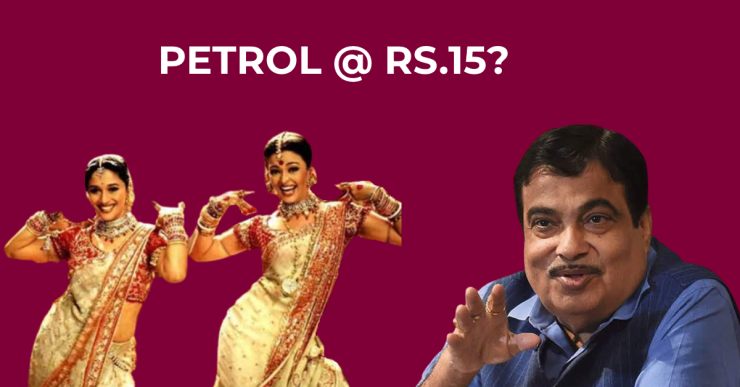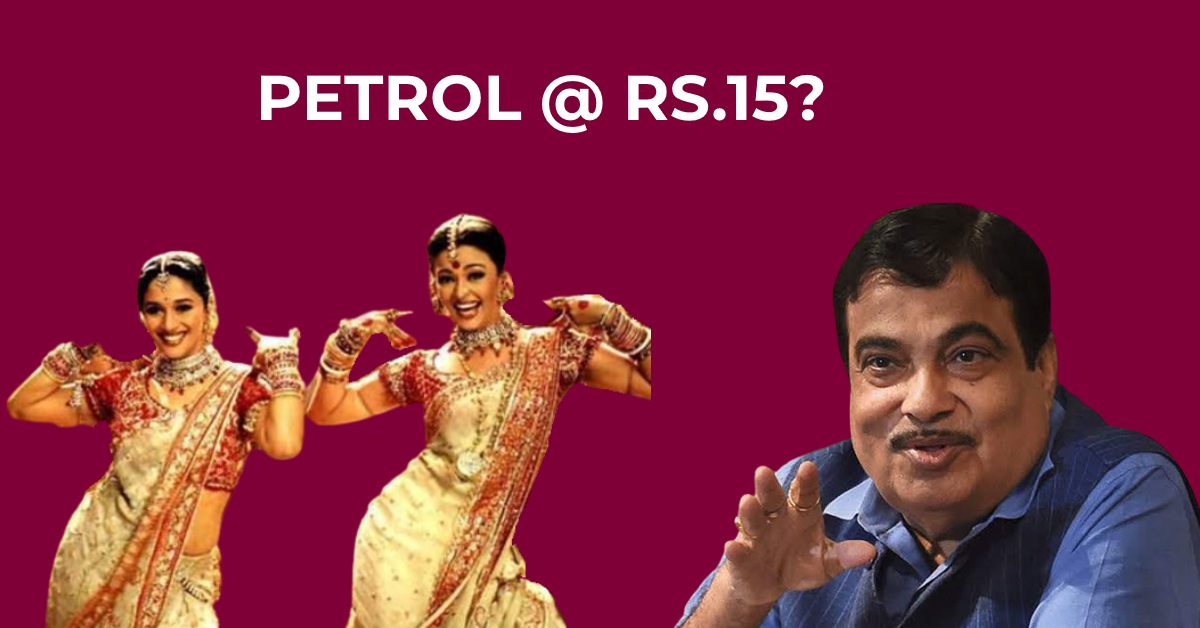The Union Minister for Road Transport and Highways, Nitin Gadkari, is often in the news for the statements he makes. He frequently speaks about promoting environmentally friendly vehicles to reduce emissions. In addition to electric vehicles (EVs), he also advocates for alternative fuel options such as flex fuels and hydrogen fuel cell cars. During a recent speech in Rajasthan, Mr. Gadkari discussed a proposal that could potentially bring down the price of petrol in India to Rs 15 per litre.
As mentioned earlier, Mr. Gadkari is a strong advocate for alternative fuels. While addressing a rally in Rajasthan’s Pratapgarh, the Union Minister shared his vision to empower farmers across the country and make them “urjadaata” (energy providers). He stated that by implementing this vision, the price of petrol in the country could be reduced. According to him, people would need to start using a blend of 60 percent ethanol and 40 percent electricity.
Also read: 10 DC Design cars & how they look in the REAL world: Maruti Swift to Mahindra XUV500
Mr. Nitin Gadkari said, “Our government believes that farmers should not only be ‘annadata’ (food providers) but also ‘urjadata’ (energy providers)… all vehicles will now run on ethanol produced by farmers. If we consider an average blend of 60% ethanol and 40% electricity, petrol will be available at the rate of ₹ 15 per litre, benefiting the people.” He also highlighted the advantages of using ethanol-mixed fuel, stating that it would not only reduce pollution and imports but also redirect a significant import expenditure of Rs 16 lakh crore towards the farmers’ households.

Earlier this year, Prime Minister Narendra Modi introduced petrol blended with 20 percent ethanol at select petrol pumps in 11 states and union territories as part of a government program to increase the use of biofuels. Currently, most petrol pumps in the country offer 10 percent ethanol-blended petrol. The government plans to double the quantity of ethanol by 2025.
The program will provide sugarcane farmers in the country with an additional source of income. Over the past 8 years, ethanol suppliers have earned Rs 81,796 crore, while farmers received Rs 49,078 crore. India has saved Rs 53,894 crore in foreign exchange outgo and reduced carbon dioxide emissions by 318 lakh tonnes. Ethanol production in India primarily relies on sugarcane molasses, which serves as a prime example of first-generation biofuels that use biomass with high sugar content or materials that can be converted into sugar, such as starch, for ethanol generation. Through the action of yeast enzymes, simple sugars are transformed into ethanol and carbon dioxide. Additionally, starches derived from potatoes, corn, wheat, and various other plants can also be used in the fermentation-based ethanol production process.
Since ethanol is produced from plants that harness the power of the sun, it is also considered a renewable fuel. One major issue with ethanol, however, is that it is hygroscopic, meaning it tends to absorb moisture from the atmosphere. As a result, it does not ignite as easily as regular petrol. This leads to “fizz separation,” which renders the fuel useless and can damage the engine. However, this typically only occurs when the fuel in the tank is not used for extended periods of time.
Also read: Upcoming 2022 Maruti Suzuki Vitara Brezza rendered






![Tata Nexon facelift interiors: What they look like at night [Video]](https://www.cartoq.com/wp-content/uploads/2023/08/nexon-facelift-featured-253x131.jpg)



